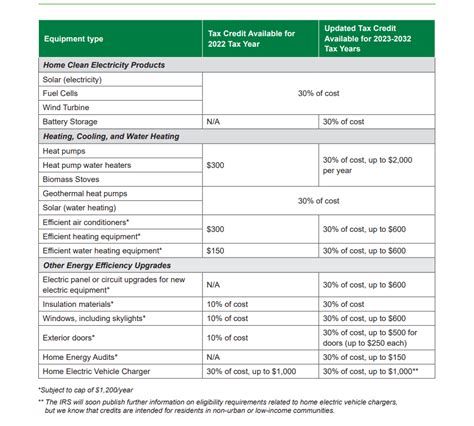Unlock Savings: How Federal Rebates for Heat Pumps Can Cut Your Energy Bills
As energy costs continue to rise and the urgency to combat climate change increases, more homeowners are exploring energy-efficient solutions for heating and cooling. One of the most promising options is the heat pump, a system that provides efficient heating in winter and cooling during summer. With federal rebates available, investing in a heat pump can translate into substantial savings on your energy bills. In this article, we will delve into how heat pumps work, the federal rebates available, and how they can significantly cut your energy costs.
What is a Heat Pump?
A heat pump is an energy-efficient system that transfers heat between the indoors and outdoors. It operates using a refrigeration cycle, absorbing heat from the outside air or ground and transferring it inside to heat your home. During warmer months, the process reverses, extracting heat from the indoors and releasing it outside to cool your home. Heat pumps are known for their high efficiency; they can provide up to three times more heating or cooling energy than the electrical energy they consume.
The Benefits of Heat Pumps
- Energy Efficiency: Heat pumps are significantly more efficient compared to traditional heating methods such as gas or electric furnaces. They can reduce energy usage by 50% or more.
- Environmentally Friendly: By using less energy and relying on renewable sources, heat pumps lower your carbon footprint.
- Dual Functionality: Heat pumps can serve as both heaters and air conditioners, eliminating the need for separate systems and reducing installation costs.
- Low Maintenance: With fewer moving parts, heat pumps generally require less maintenance than traditional HVAC systems.
Federal Rebates for Heat Pumps
The U.S. federal government is incentivizing homeowners to switch to energy-efficient heating and cooling solutions through various rebate programs. These programs are designed to reduce the upfront costs associated with purchasing and installing heat pumps.
As part of the Inflation Reduction Act (IRA), homeowners can access substantial rebates and tax credits that make heat pumps more financially viable. The key rebates include:
1. The High-Efficiency Electric Home Rebate (HEEHRA) Program
This program offers eligible homeowners rebates up to $8,000 for the purchase and installation of heat pumps. The rebates are tiered based on income levels, making it an excellent opportunity for low- and moderate-income households to access energy-efficient technology.
2. The Residential Renewable Energy Tax Credit
Homeowners can claim a tax credit of up to 30% of the installation costs for heat pumps, significantly offsetting the initial investment. This credit is available for both air-source and ground-source heat pumps.
How Heat Pumps Can Lower Your Energy Bills
Switching to a heat pump can drastically lower your energy bills. Here’s how:
Reduced Energy Consumption
Heat pumps utilize electricity more efficiently than traditional HVAC systems. Since they can provide up to three units of heating or cooling for every unit of electricity consumed, homeowners can expect to see a marked reduction in their energy bills.
Long-term Savings
While the initial installation cost of a heat pump may be higher than conventional systems, the operating costs over time are usually much lower. Homeowners can save hundreds of dollars annually on energy bills, ultimately recouping the initial costs and continuing to save over the lifespan of the system.
Increased Property Value
By investing in a heat pump, you not only save on energy costs, but you also increase the resale value of your home. Energy-efficient homes are increasingly desirable in the real estate market, leading to faster sales and higher offers.
The Installation Process
Installing a heat pump requires professional assistance, as it involves handling refrigerants and ensuring that the system is correctly sized for your home. Here are the general steps involved:
- Consultation: Work with a qualified HVAC contractor to assess your home’s heating and cooling needs.
- System Design: The contractor will design a system that optimally meets your home’s requirements, considering factors such as size, insulation, and existing ductwork.
- Installation: The contractor will install the indoor and outdoor units. This typically involves refrigerant lines, electrical connections, and the setup of any necessary ductwork adaptations.
- Testing: Once installed, the system will be tested to ensure it operates efficiently and effectively.
Conclusion
Investing in a heat pump is not just an environmentally friendly choice; it’s a financially savvy one as well. With federal rebates helping to offset costs, homeowners can enjoy substantial savings on energy bills while decreasing their carbon footprint. The combination of efficiency, functionality, and long-term cost savings makes heat pumps an attractive option for anyone looking to improve their home’s energy efficiency. By taking advantage of available federal programs and rebates, you can unlock significant savings and contribute positively to the environment.
FAQs
1. How do I qualify for federal rebates for heat pumps?
Eligibility can vary based on the specific program, but generally, homeowners must install a qualified heat pump system in their primary residence and meet certain income requirements for specific rebate programs.
2. How much can I save on my energy bills with a heat pump?
On average, homeowners can save between 30% and 50% on their energy bills by switching to a heat pump, depending on factors like existing heating systems and local energy rates.
3. Are heat pumps effective in cold climates?
Modern cold-climate heat pumps are designed to operate efficiently in colder temperatures, with some models working effectively at temperatures as low as -5°F.
4. What maintenance do heat pumps require?
Heat pumps require regular maintenance, including filter changes, annual inspections, and cleaning of coils, to ensure optimal performance and longevity.
5. How do I find a qualified contractor for heat pump installation?
Look for licensed and experienced HVAC contractors in your area who specialize in heat pump installation. Reviews, referrals, and estimates can help you make an informed decision.
Download Federal Rebate For Heat Pump
